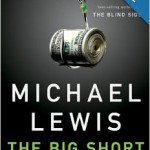Everyone from startups to seasoned companies and their shareholders can take a lesson from the Monster books and records demand debacle.
I know what you’re thinking: “How lucky am I to have two books and records articles in two weeks!”
Monster Worldwide (of job board fame) was acquired and merged out of existence. A shareholder had made a books and records demand prior to the merger but did not bring suit to enforce it until after the merger. The demand letter said it would assume Monster would not take certain actions unless Monster said otherwise by a deadline. Monster did nothing. Former shareholder loses.
Here’s a timeline that will be helpful:
- August 8 – Monster and Acquiror enter into a merger agreement
- September 6 – Acquiror commences a tender offer to Monster shareholders under the merger agreement
- October 19 – Shareholder sends demand letter to Monster seeking access to books and records
- October 26 – Monster rejects demand in current form but offers to cooperate on limited access
- October 26 – Shareholder emails about the limited offer and stating that if the merger closes before he files a complaint, he expects that the company will refrain from asserting any argument that he lost standing to inspect documents because the merger closed before he filed his complaint. If the company will not refrain from making any such argument, please tell me by 10:00 a.m. Eastern time tomorrow.”
- October 28 – Withdrawal rights for the tender offer expire; Monster responds to Shareholder refusing to refrain from anything
- November 1 – Merger completed
- November 4 – Monster notifies Shareholder that its request was moot since the merger occurred
- November 22 – Shareholder files complaint
The Shareholder claimed he still had standing according to some policy arguments based on the timing of his demands to Monster, but the court noted that this was simple:
The language of Section 220(c) is plain and unambiguous. By requiring that a plaintiff under Section 220, to seek relief from this Court, demonstrate both that it “has”—past tense—complied with the demand requirement, and that it “is”—present tense—a stockholder, the legislature has made clear that only those who are stockholders at the time of filing have standing to invoke this Court’s assistance under Section 220.
Since the merger had occurred, the Shareholder was no longer a shareholder at the time of the complaint. Therefore, he did not have standing under DGCL Section 220(c) to file a suit to enforce his right to books and records.
As we mentioned in our previous post, all corporations are bound by the books and records requirements of their jurisdiction of incorporation. Startups are not exempt just because they like confidentiality and “stealth mode.”
Likewise, shareholders making a demand must conform to strict requirements of the statute. A company can refuse and delay access on the basis of an improper request.
–Joe Weingarten v. Monster Worldwide, Inc.



